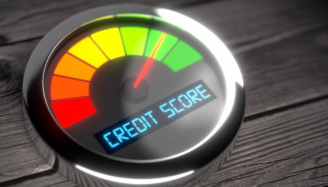Learn tips to improve your credit score quickly
Boost your credit score fast with practical tips! Discover strategies to manage payments, reduce credit usage!
See tips to improve your credit score

Having a good credit score in the United States is not just about numbers; it’s about opening doors. Whether it’s getting a credit card with amazing benefits, financing the purchase of a car, or even renting that dream apartment, your credit score can be the key to opportunities.
And if you think improving your score is a tough challenge, don’t worry! We’re here to show you practical tips that can help you boost those numbers in no time. Keep reading until the end to discover all the details!
Understand Your Credit Score
Before anything else, you need to know where you stand. Many people don’t monitor their scores and end up being caught off guard. To start, access your credit report for free on platforms like Annual Credit Report. This official site allows you to view your reports from the three main credit bureaus (Equifax, Experian, and TransUnion) once a year at no cost.
When reviewing your report, look for errors, accounts you’ve already paid, or any information that seems suspicious. Correcting these errors can quickly increase your score.
Pay Your Bills on Time
It sounds obvious, but late payments are one of the biggest reasons credit scores drop. Timeliness represents about 35% of your credit score. If you often forget deadlines, set reminders or, better yet, enroll in automatic payments.
Having trouble paying everything on time? Prioritize high-interest accounts, like credit cards, to prevent charges from piling up.
Reduce Credit Card Limit Usage
Another important factor is how much of your credit limit you’re using. This is called the “credit utilization ratio.” To improve your score, try to keep this ratio below 30%—that is, if you have a $10,000 limit, aim not to use more than $3,000.
If you’re above this limit, consider paying off part of the balance as quickly as possible. Another option is to ask your bank for a credit limit increase. Even if you don’t plan to spend more, this automatically reduces your utilization rate and can help your score.
Don’t Close Old Accounts
If you have old credit cards you don’t use often, think twice before closing them. These cards show a long history, which can benefit your score. A solid credit history proves that you know how to manage your finances over time.
Negotiate Outstanding Debts
If you have debts that have gone to collections, it might be a good idea to negotiate. Contact creditors and see if they’re willing to accept a reduced amount to settle the debt. Always ask, if possible, for them to remove the negative account from your report as part of the agreement.
Avoid Multiple Credit Inquiries
Every time you apply for a new credit card or loan, a hard inquiry is made on your report. Too many inquiries in a short period can harm your score. So, before applying for credit, make sure you really need it.
Build Credit Gradually
If you have little or no credit history, you can start with a secured credit card. These cards work like a prepaid card: you make an initial deposit, and that amount becomes your limit. Over time, your responsible use will be reported to the credit bureaus, helping to build your score.
Improving your credit score isn’t something that happens overnight. It’s important to track your progress and adjust your strategy if necessary. There are apps like Credit Karma or Experian that provide regular updates and personalized tips to improve your credit.
Remember that every small step counts, and the key is to stay focused and disciplined. Now it’s your





